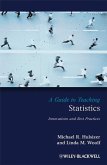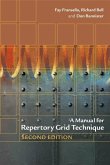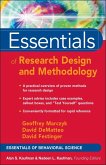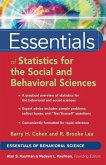Through the use of clearly defined instructions and examples, How to Write in Psychology is a concise and comprehensive guide for the well-prepared student on the principles of writing essays and research papers for psychology.
- Presents everything the well-prepared student needs to know about the principles and practice of writing for psychology
- Compares and contrasts the different writing requirements and techniques for essays and research reports in psychology
- Offers advice on constructing figures and producing properly formatted graphs and tables
- Includes exercises to improve grammar, style, and critical awareness
- Provides checklists, tips for getting started, and examples of a properly written essay and lab report
Dieser Download kann aus rechtlichen Gründen nur mit Rechnungsadresse in D ausgeliefert werden.
In the average psychology degree, there's a whole lot of writing tobe done, and much of it is very stylistically prescribed, and thestudent new to psychology has to quickly develop and use a newvocabulary and understand the demands of examinations, essays,experimental reports, and longer works such as final-year researchprojects. Furthermore, even research reports differ, depending onwhether they are write-ups of quantitative or qualitative research,and so on.
This book is clear, well-structured, readable, enjoyable andhighly informative. Given that students have a lot to learn in thecourse of their studies, any book that propels them forward has tobe welcomed. There are hundreds of volumes on writing, a handful ofwhich are focused on writing in psychology. This, in my opinion, isby far the best of them.
Mark Forshaw, Staffordshire University
"Written in a style that is clear, direct, and concise, Howto Write in Psychology is an indispensable handbook forstudents - a must for anyone starting a BSc Psychology course, orpreparing their final year project."
Dean D'Souza, BPS Student Rep
This book is clear, well-structured, readable, enjoyable andhighly informative. Given that students have a lot to learn in thecourse of their studies, any book that propels them forward has tobe welcomed. There are hundreds of volumes on writing, a handful ofwhich are focused on writing in psychology. This, in my opinion, isby far the best of them.
Mark Forshaw, Staffordshire University
"Written in a style that is clear, direct, and concise, Howto Write in Psychology is an indispensable handbook forstudents - a must for anyone starting a BSc Psychology course, orpreparing their final year project."
Dean D'Souza, BPS Student Rep









